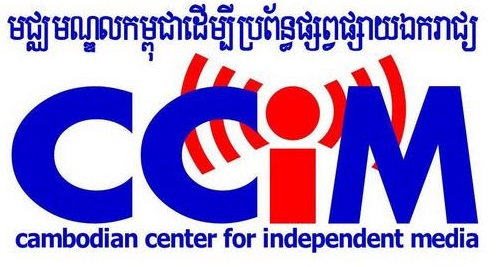2017: The year of crackdowns
On September 4th 2017, The Cambodia Daily announced its own closure for the first time in 24 years in Cambodia. The cease of operation came after a massive disputed $6.3 million tax bill. In its press statement, The Cambodia Daily said the power to tax is the power to destroy, adding that the Cambodian government has destroyed a singular part of Cambodia’s free press.
Amid the closure of Daily, the problem of broadcast licensing led to the closure of more radio stations in Cambodia, in what media expert has described as massive crackdown on independent media ahead of the 2018’s election. A prominent Human Rights organisation, Licadho cited in late August 2017, 32 FM radio frequencies across 20 provinces were ordered to close by Cambodian authorities. According to Ministry of Information’s document, dated November 23, the number was significantly lower: 21 radio stations across the country were reported to have shut down due to licensing issues.
The shutdown particularly hit stations relaying contents of main opposition party CNRP, which were dissolved by Cambodia’s Supreme Court on November 16, and independent Khmer-language news: Radio Free Asia (RFA), Voice of America (VOA) and the Cambodian non-profit, Voice of Democracy (VOD). There were all taken off the air, and their news programme effectively lost all access to the airwaves. Licadho said the closure heavily affect especially rural area where radio is a major source of information due to low Internet access.
On September 12th 2017, the United States-funded broadcaster Radio Free Asia for Khmer Service (RFA Khmer) also closed its Phnom Penh bureau and ceased in-country operations. In a press statement, RFA said a recent crackdown on independent media that has made it impossible to continue the work in the country. On November 18th, 2017, two former RFA journalists were even detained and were provisionally charged by Phnom Penh Municipal Court with “espionage”. The accusation against them came less than two months amid the RFA cease operation. In case they both get convicted, they will face seven to 15 years in prison according to Cambodian Criminal Code.
In document responding to a UN warning shortly after the arrest, Cambodia’s Ministry of Information has defended as legitimate its recent crackdown on independent press outlets, adding that the government did not use the law to restrict or shut down independent media. According the document, the government also denied that the radio stations had been closed without warning.
Amid the crackdown, analysts perceived Fresh News as the most influential forces speeding pro-government news, but it has long denied any formal connection to the ruling party.
Sources
-
The Cambodia Daily. The Cambodia Daily closes after 24 years.
-
The Phnom Penh Post (13.October.2017). Tax chief backs Daily shuttering.
-
The Phnom Penh Post (25.August.2017). Government closes 15 radio stations.
-
The Phnom Penh Post (11. Sep. 2017). Daily founder claims liability.
-
The Phnom Penh Post (12. Sep. 2017). RFA shuts down Cambodia operations amid media crackdown.
-
The Phnom Penh Post (18. Sep. 2017). Official warns ex-RFA staffers about continuing to work in Cambodia.
-
The Phnom Penh Post (18. Nov. 2017). Breaking: Ex-RFA reporters provisionally charged with ‘espionage’, facing up to 15 years.
